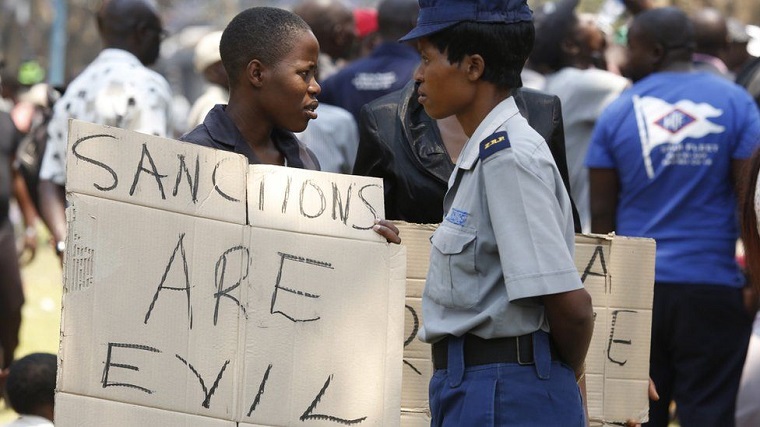 Parliament has passed the Criminal Law (Codification and Reform) Amendment Bill, meant to punish citizens who “wilfully damage the sovereignty and national interest” of Zimbabwe.
Parliament has passed the Criminal Law (Codification and Reform) Amendment Bill, meant to punish citizens who “wilfully damage the sovereignty and national interest” of Zimbabwe.
The bill contains several changes to existing laws, such as penalties for illegal drugs, mandatory sentences for rape, and measures on the abuse of authority by public servants. However, it is the changes relating to political activities that have grabbed public attention. Those changes have come to be known as the “Patriotic Bill” because they will punish people for what the law’s promoters call “unpatriotic acts”.
It was passed in Parliament by a vote of 99 to 17. It now goes to the Senate, and then to the President who will sign it into law.
So, what does the law really say? What can you and can you not do under the Patriotic Bill? Does the law really make it illegal to criticise the government as widely reported? What punishments do offenders face?
Here, we simplify the law and go through the things that will get you jailed once the law is signed.
Don’t go into a meeting that discusses sanctions or trade boycott
Someone invites you to a meeting arranged by or involving a foreign government or agency, and you find out that sanctions may be discussed in there? Walk away. According to the law, you are committing a crime if you willfully take part in any meeting where there is “consideration of or the planning for the implementation or enlargement of sanctions or a trade boycott against Zimbabwe”. Going to a meeting – in Zimbabwe or abroad – that plans, or even considers, sanctions, will land in you in trouble.
What are sanctions anyway, according to this Bill?
The Bill says “sanctions” are when a foreign government or agency bars its people “from investing in Zimbabwe or from engaging in any economic activity in or with Zimbabwe or with any entity of Zimbabwe”, if that investment benefits the economy in any way.
Also, it doesn’t matter if these are “targeted” sanctions or general ones.
If, for example, you knowingly go into a meeting where they’re saying “don’t invest in that agriculture company, Businessman X has shares there”, you may be charged.
Another example: Zimbabwe is excluded from AGOA, the US facility that gives some African countries preferential trade access. If you went into a meeting and called on countries or agencies to take similar action, or to call on them not to trade with Zimbabwe, you may be arrested.
Continued next page
(237 VIEWS)

